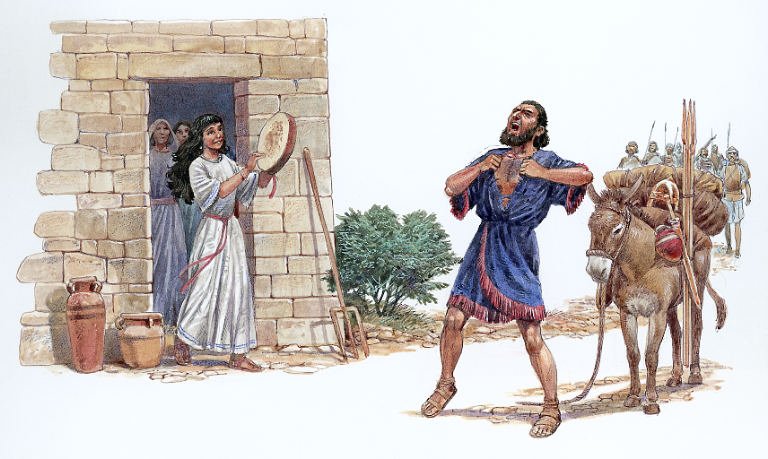It reads, it came to pass, when he saw her, that he rent his clothes, and said Alas my daughter! Thou hast brought me very low, and thou art one of them that trouble me: for I have opened my mouth unto the Lord, and I can't go back
.jpeg)
Among the nobles of Israel, the making of a vow before the Lord was a very serious thing King Solomon wrote that is better not to vow than to vow and not to pay.
Jephthah held this view; and while his vow proved to be much more costly than he expected, having entered into such a solemn obligation, he sees no way of changing it. Nor did his daughter rebel. she understood the situation and asked only for two months in which the record states, "I may go up and down upon the mountains, and bewail my virginity, I and my fellows.
Jephthah granted this request. After the two months, " she returned unto her father, who did with her according to his vow which he had vowed: and she knew no man.
It is generally supposed that Jephthah actually offered his daughter in sacrifice, as a bullock or goat would be offered; and indeed a casual reading of the King James version of the Bible rather favor this viewpoint. But the marginal rendering of verse 40 gives a different thought. it explains that the daughters of Israel went yearly "to talk with the daughter of Jephthah, the Gileadite, four days in a year.

This explanation becomes a custom in Israel Obviously Jephthah's daughter must have remained alive, else the daughters of Israel could not have talked with her each year. Examining the record more carefully, it becomes apparent that what really happened was that the girl remained a virgin throughout her entire life, which from the Israelitish viewpoint, was a tremendous sacrifice for the father to ask of her.

Hi! I am a robot. I just upvoted you! I found similar content that readers might be interested in:
http://dawnbible.com/1955/5510tbs1.htm